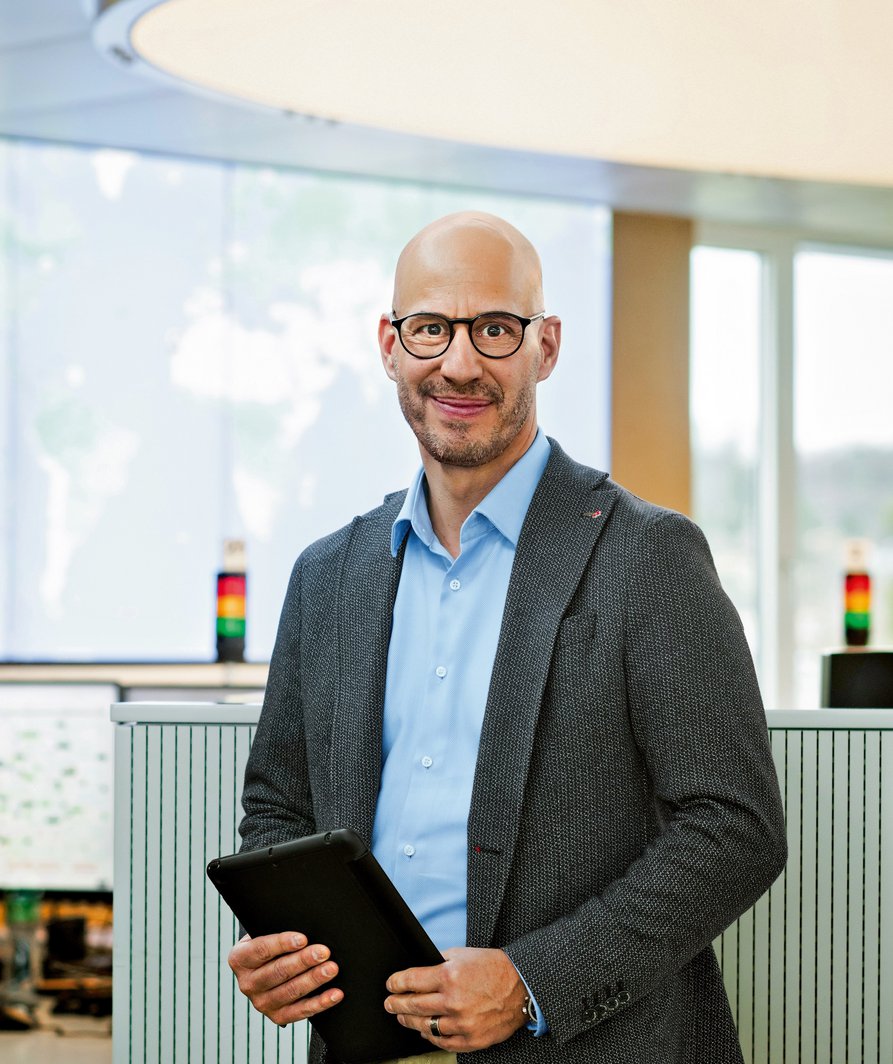What does your area of responsibility encompass?
I am responsible for the entire sphere of repatriation – or in a nutshell, for the assistance Rega provides abroad. We employ around 100 staff for this. They include pilots, medical consultants, intensive care flight nurses, flight physicians and flight coordinators, as well as people involved in ground operations, jet maintenance and pilot training.
What fascinates you most about your job?
I love the mix of different tasks, of both operational and strategic issues. In the hangar are our three ambulance jets, which we use to fly ill and injured people home. Within the Management Board, we discuss Rega’s strategy. My work therefore calls for both operational and management expertise. We are a small organisation, and it takes teamwork to be able to help people in distress.
Where in the world can Rega be found?
Rega helps wherever it is needed. Every year, we fly to 400 different airports and airfields around the globe and land in such places as Italy, Morocco, Greenland and New Zealand, but also French Polynesia or Easter Island.
Are there any destinations that Rega does not fly to?
We do not fly to active war zones and only to crisis regions after in-depth clarifications. Nevertheless, despite this we still do our best to help – for example, by organising an ambulance to take the patient to a nearby location where we are granted permission to land.
What does Rega’s assistance abroad involve?
It is very varied. In the event of a medical emergency abroad, our patrons can call Rega around the clock on our emergency number +41 333 333 333. The Rega medical consultants help them over the phone or arrange for them to be transported home. Depending on the patient’s condition, this can be in one of our ambulance jets or on board a scheduled aircraft. In the latter case, too, the patient is accompanied during the flight by a member of our medical staff.
How complex is it to organise a mission abroad?
It requires the support of various specialists: in the Operations Center, the flight coordinators, medical consultants and flight dispatchers. Then, of course, the flying crews, comprising pilots, intensive care flight nurses and flight physicians. And on the ground, our aircraft mechanics and medical logisticians. We rely on help from our partners abroad, too – for instance, the ambulance vehicles or the handling agents who refuel our aircraft and handle them when they are on the ground. All this has to be organised and coordinated.
How long would it take for Rega to bring me back to Switzerland?
That depends on where you are. In some countries, for example, it takes two or three days before we receive the overflight and landing authorisation. On top of that, we have to determine the best time for the return flight from a medical point of view. To do this, we talk to the hospital doctors on location. We do all this quickly and efficiently, but it still takes a certain amount of time to ensure that the patient can be repatriated safe and sound. Therefore, if in doubt, it is better to call Rega sooner rather than later.
